Description
Abstract
Language does not exist in a vacuum. For this reason, a proper study of language cannot be divorced from the study of language use/users. Any given language is used in different ways by different people for different reasons. For a bilingual/multilingual individual in a multilingual society such as Nigeria, things are a bit complex. The individual has to determine which particular code or codes are appropriate in any given discourse situation, and where necessary, how to switch codes midway. The presence of more than one language in the repertoire of an individual is of linguistic import. Languages in contact, it is said, are languages in conflict. This is especially true where there is a different level of proficiency for each of the languages. In the Nigerian context, virtually everyone learns English after the acquisition of a native language. This often results in a poor mastery of English, as it has to compete with an entrenched mother tongue. The aim of this study is to investigate language use among Nigerian secondary students from a sociolinguistic perspective. Research questions such as; to what degree do learners encounter problems in learning the second language and to what degree does the speech community of ESL learners affect their language use were formulated and examined by the researcher. The population for the study is made up of secondary school teachers and students in Awka South LGA. A total of 40 teachers and 120 students from four different schools were selected to take part in the study. Three research instruments namely: a questionnaire, a blankfilling test and a multiplechoice test were used and the data obtained were analysed using frequency table and percentage. From the data analysis, the researcher observed that: second language learners in Nigeria face enormous problems in learning the target language; speech community and contexts influence the selection of code from the repertoire of respondents; language learners improve in their target language proficiency as they progress in class. These observations indicate the need for parents to encourage the use of native languages by their children; and the need for government to make serious efforts to arrest the declining standard of spoken and written English.
Table of Contents
Title Page i
Approval Page ii
Certification iii
Acknowledgements iv
Dedication v
Abstract vi
Table of Contents vii
CHAPTER ONE
INTRODUCTION
1.1 Background to the Study 1
1.2 Statement of the Problem 5
1.3 Purpose of the Study 6
1.4 Significance of the Study 7
1.5 Scope/Limitation of the Study 8
1.6 Research Questions 8
CHAPTER TWO
REVIEW OF RELEVANT LITERATURE
2.1 Conceptual Framework 9
2.1.1. The Meaning of Sociolinguistics 10
2.1.2. The Concept of Speech Community 13
2.1.3. Language Variation 14
2.1.3.1. Types of Language Variation 14
2.1.3.2. Language Variation: Focus on the Users 16
2.1.3.3. Language Variation: Focus on the Uses 20
2.1.3.3.1. The Meaning of Style 20
2.1.3.3.2. Classification of Style 21
2.1.4. The Place of Error in a Multilingual Society 23
2.1.4.1. The Concept of Errors 23
2.1.4.2. Errors versus Mistakes 24
2.1.5. Multilingual Conversation and the Place of Codeswitching 26
2.1.6. The Notion of Accent 28
2.1.7. Languages in Nigeria and their Domains of Use 30
2.2. Theoretical Framework 31
2.3. Empirical Studies 36
2.4. Summary 46
CHAPTER THREE
METHODS AND PROCEDURES
3.1 Research Design 48
3.2 Areas of Study 49
3.3 Population and Sample of the Study 49
3.4 Research Instrument 50
3.5 Validation of Instrument 52
3.6 Administration Procedure 53
3.7 Method of Data Collection 53
3.8 Method of Data Analysis 53
CHAPTER FOUR
DATA PRESENTATION AND ANALYSIS
4.1 Data Presentation and Analysis 54
CHAPTER FIVE
DISCUSSION OF RESULTS AND CONCLUSION
5.1 Summary and Observations 72
5.2 Implication of the Study 73
5.3 Recommendations 74
5.4 Suggestions for Further Research 75
Works Cited 77
Appendix A: Questionnaire 82
Appendix B: Blank Filling Test 90
Appendix C: Multiple Choice Test 92

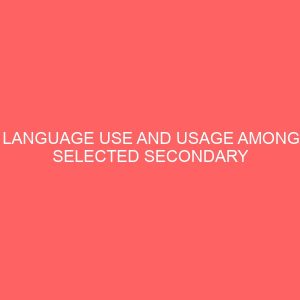

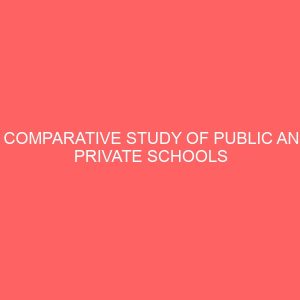
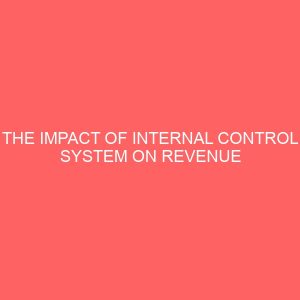
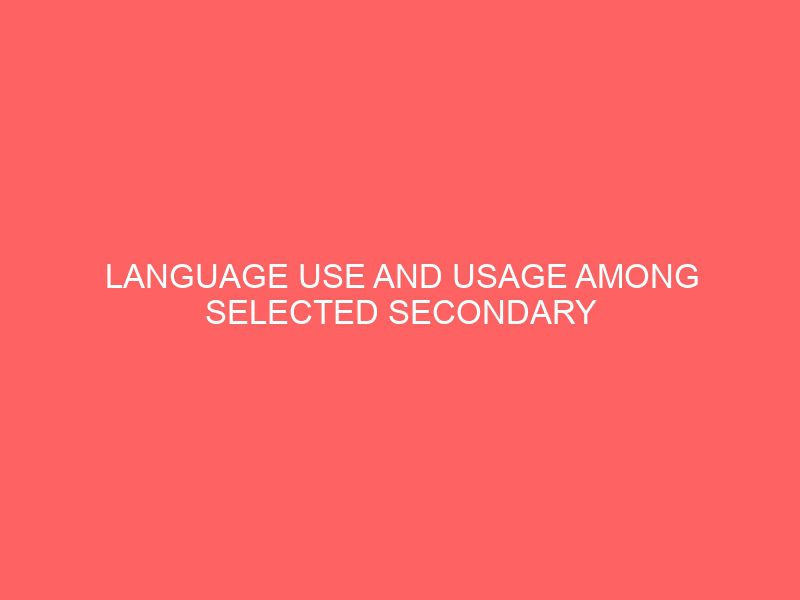
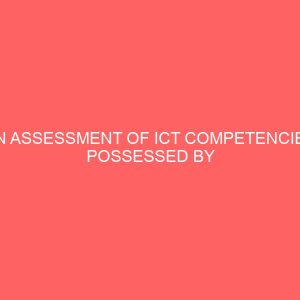

Reviews
There are no reviews yet.